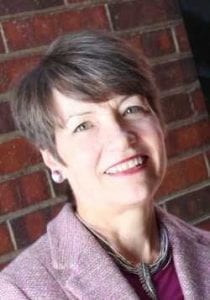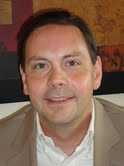Carrie Doehring

Carrie Doehring is the Clifford Baldridge Professor of Pastoral Care at Iliff School of Theology and in the joint PhD program with Denver University. She is ordained in the Presbyterian Church, USA and licensedas a psychologist in Colorado and Massachusetts. She is the author of 38 chapters and articles, and three books. Her work explores how people draw upon religious faith and spirituality to cope with experiences like trauma, moral stress, and prejudice. She wrote the chapter “Religiously-Linked Discrimination, Prejudice, and Victimization” for the 2013 APA Handbook of Psychology, Religion, and Spirituality (Vol. II). Her book, The Practice of Pastoral Care: A Postmodern Approach, Revised and Expanded (Louisville, KY: Westminster John Knox, 2015), is widely used as a textbook in pastoral care and clinical pastoral education. She is co-editor of a forthcoming volume of Pastoral Psychology on military moral injury.
Dr. Doehring directs the Masters of Arts in Pastoral and Spiritual Care and the course provider program on military ministry at Iliff School of Theology. Her online pedagogy focuses on the competencies that chaplains need in order to provide intercultural, evidence-based, socially just spiritual care. She has developed a holistic, systemic pedagogy fostering “spiritually integrative financial resilience” that helps students collectively share the moral stress of student debt in ways that foster spiritual wholeness, resilience, and justice. Her pedagogy helps students identify and spiritually integrate their own experiences of moral stress and injury in order for them to experience the ways that spiritual care—especially the search for spiritual/religious practices and meanings—is different from behavioral health care.
David Hodge

David R. Hodge, PhD, is a professor in the School of Social Work at Arizona State University. He also holds appointments at: the University of Pennsylvania in the Program for Research on Religion and Urban Civil Society, Baylor University in the Institute for Studies of Religion, and at Duke University in the Center for Spirituality, Theology and Health at the Center for Aging, Duke University Medical Center. Dr. Hodge’s research focuses on spirituality, religion and culture, especially as these interrelated constructs intersect health and wellness. He has written over two hundred articles and book chapters on these and other topics.
John Peteet

After receiving his M.D. degree at Columbia University, Dr. Peteet completed a medical internship at UNC in ChapelHill, a residency in psychiatry at the Massachusetts Mental Health Center, and a fellowship at the Peter Bent Brigham Hospital, in Boston. For over 40 years he has been a psychiatrist at Brigham and Women’s Hospital and Dana-Farber Cancer Institute, where he is an Associate Professor of Psychiatry at Harvard Medical School. A Distinguished Life Fellow of the American Psychiatric Association, he has received several teaching awards and published numerous papers in the areas of psychosocial oncology, addiction, and the clinical interface between spirituality/religion and psychiatry. He has authored or co-edited 7 books, including Doing the Right Thing: An Approach to Moral Issues in Mental Health Treatment, Depression and the Soul and The Soul of Medicine: Spiritual Perspectives and Clinical Practice. He serves as president of the American Psychiatric Association’s Caucus on Religion, Spirituality and Psychiatry.
Scott Richards
P. Scott Richards received his PhD in counseling psychology in 1988 from the University of Minnesota. He was a faculty member at Brigham Young University from 1990 until 2019 where he was a professor in the Department of Counseling Psychology and Special Education until his retirement. He is coauthor of A Spiritual Strategy for Counseling and Psychotherapy (1997, 2005), coeditor of the Handbook of Psychotherapy and Religious Diversity (2000, 2014), and coauthor of Spiritual Approaches in the Treatment of Women with Eating Disorders (2007), all of which were published by the American Psychological Association. He received the William C. Bier award in 1999 from Division 36 (Psychology of Religion) of the American Psychological Association for outstanding contributions to findings on religious issues. He is a fellow of Division 36 and served as President of the division from 2004 to 2005. Dr. Richards is a licensed psychologist and is the Director of Research at the Center for Change in Orem, Utah.
Steven Sandage
Steven J. Sandage, M.Div., Ph.D., LP, is the Albert and Jessie Danielsen Professor of Psychology of Religion with a joint appointment in the School of Theology and the Department of Psychological and Brain Sciences at Boston University. He is Research Director and Senior Staff Psychologist at the Danielsen Institute, and he is a Visiting Faculty in Psychology of Religion at MF Norwegian School of Theology in Oslo. His books include ToForgive is Human, The Faces of Forgiveness, Transforming Spirituality, The Skillful Soul of the Psychotherapist, Forgiveness and Spirituality: A Relational Approach, and Relational Integration of Psychology and Christian Theology: Theory, Research, and Practice. He does research in areas that include positive psychology, psychology of religion, intercultural competence and social justice, psychotherapy processes and outcome, psychopathology, and clinical training. His research has been funded by the Lilly Endowment, the Fetzer Institute, and the John Templeton Foundation. Sandage practices as a Licensed Psychologist with clinical specializations that include couple and family therapy, multicultural therapy, and spiritually-integrative therapy. The American Psychological Association (APA) produced a clinical demonstration of Sandage doing couple therapy. He also provides diversity training and consultation to educators, mental healthcare practitioners, religious leaders, and business leaders.
Sandage’s educational journey started in his home state of Iowa where he completed a B.S. in psychology at Iowa State University. He then completed a Master of Divinity at Trinity Evangelical Divinity School where he lived at a synagogue as part of an inter-faith program. He went on to earn an M.S. and a Ph.D. in Counseling Psychology at Virginia Commonwealth University, including completing the APA-approved pre-doctoral clinical psychology internship program at the Federal Correctional Institution-Petersburg (Virginia). After joining the marriage and family therapy faculty at Bethel Seminary in St. Paul, Minnesota, he engaged in post-doctoral study at the University of Minnesota.



